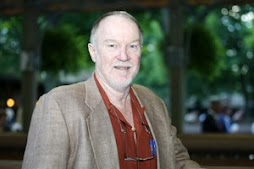Thoroughbred racing is not simply about which horse is the fastest—but that's a damned good headstart.
That is the lesson to be gleaned from the adventures of American trainer Wesley Ward at the just concluded Royal Ascot meeting. Ward took six horses to Ascot and ran them in seven races. He won a listed race and a Group 3, and finished second in a Group 1, earning a total of about $217,000.
Ward is something of a specialist with fast 2-year-olds and five of the six horses he took to England were juveniles. Ward is also a smart and observant man, and he perceived that European-trained horses simply are not trained to break from the gate as quickly as are American-trained runners.
Four of his five juvenile runners at Ascot had led from the start in their most recent starts in America. Those four had run the first quarter-mile of those races in :22.64 (Strike the Tiger), :21.70 (Jealous Again), :22.17 (Yogaroo), and :22.71 (Honor in Peace). The fifth, Aegean, had run the first quarter of her maiden victory on the lead in :22.14. European juveniles never go that fast at the start of their races.
Ward and American jockey John Velazquez reasoned that their horses would naturally outbreak their European counterparts, and if they let them run an American-style race, the European horses might be taken out of their game. If that happened, even with Ascot's uphill finish, the American horses could win.
It worked brilliantly for the first two juvenile races. Strike the Tiger led all the way in the five-furlong Windsor Castle Stakes on opening day, and Jealous Again simply scorched her opponents in the prestigious Queen Mary Stakes-G3 on day two, winning by five lengths.
European jockeys may not be one-trial learners, but they are not stupid. After those two lessons in early speed, they stayed closer to Ward's other three juvenile runners and swamped them in the end.
Ward's only older runner, the 4-year-old Cannonball, is a confirmed come-from-behind turf sprinter, a listed winner who has been narrowly beaten in Grade 3s—in other words, not a Grade 1 horse in America. Cannonball found himself well behind early in the five-furlong King's Stand S.-G1 on opening day, but, with Velazquez scrubbing on him practically from the spring of the latch, he finished with a purpose along the stands rail, winding up sixth, beaten about six lengths.
He ran much the same race in the six-furlong Golden Jubilee-G1 on closing day, hustled along at the back of the field from the start, but closing relentlessly all the way to the line to finish a neck second to Art Connoisseur.
Royal Ascot is the most prestigious race meeting in England and attracts the very best English, Irish, and (sometimes) French racehorses, but no one would have ranked any of Ward's horses anywhere near the top of their divisions in America. With the possible exception of Cannonball, the Ascot results did not change that perception.
So does this mean that—at least over sprint distances—the best American horses are that much better than the Europeans? Not so fast. Speed kills, but intelligent tactics can win races. All credit to Strike the Tiger and Jealous Again for being fast enough to run away from their opponents early in their races and brave enough to keep going up the final hill. Aegean, however, had beaten Jealous Again in the Kentucky Juvenile Stakes-G3, but she could never get away from her field at Ascot and was simply outrun at the finish. The European jockeys declined to be embarrassed again.
Still, Ward's triumphs—and the $217,000 he earned with what are probably second-rate horses—should encourage other American trainers to venture abroad with better horses. Americans have too long been spoiled by having higher purses than most of the rest of the world. Especially for top-level races, however, that is no longer true.
European, Dubaian, South African, and Australian trainers have raided valuable races all over the world for many years now with little to no opposition from American trainers. How much longer will American owners allow the Todd Pletchers, Bobby Frankels, and Steve Asmussens to ignore the money to be plundered abroad?
The Horse Racing blog has moved
10 years ago


No comments:
Post a Comment